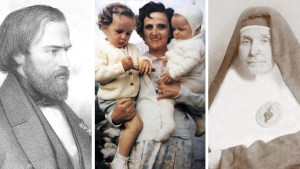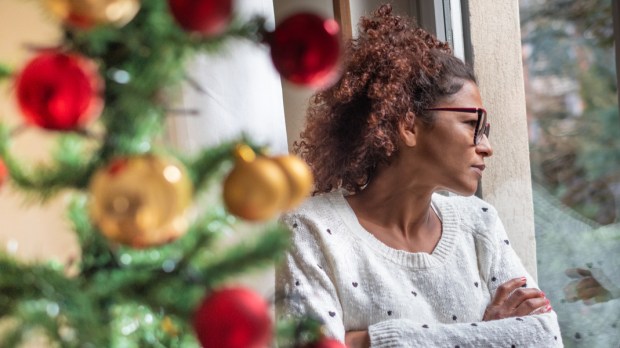Our daughter, Judith, was stillborn on March 15, 2020, in Oxford, just days before the UK went into a national lockdown. Her 20-week scan in January had revealed that she was abnormally small for her age, and a diagnosis of placental dysfunction soon followed. That meant that she was not receiving an adequate blood supply and hence not growing sufficiently.
“Placentas misbehave all the time,” the specialist doctor explained, “but it’s not common that it happens this early in pregnancy.”
The implications soon became clear. Babies tend to reach 600g (21 oz) by 24 weeks, which is roughly when they are viable outside the womb, but it’s really their weight rather than their age that predicts their chances of survival.
In our daughter’s case, the route to reaching a viable weight would have been longer and more arduous than most, and far from guaranteed because of the dysfunctional placenta. At the last ultrasound where we saw her alive, we were told that “her heart is struggling.” When she died at 28-and-a-half weeks, she weighed just 470g (16.6 oz).
Is it strange to grieve over someone you’ve never met? At least, that’s how we characterized baby loss before our own experience. How wrong we were!
We felt her move and saw her heart beating. I remember every bus ride back into town with my wife after each fortnightly ultrasound, following the diagnosis. “She’s still with us, she’ll live to see another day,” was the hope that animated our conversations.
But it’s funny how difficult it can be to empathize with baby loss even if, like us, one has had a child before. Our first pregnancy was so smooth that we couldn’t even imagine anything going wrong. Of course, as first-time parents the ultrasound appointments had been very moving and memorable experiences for us, but they didn’t have the same bittersweet meaning as the second time round, as we took it granted we would get to see our first child born.
Coming to terms with our daughter’s stillbirth in the midst of a pandemic has taught us a great deal. Grief, as I’ve come to realize, is something we often work out socially, and not simply in the quiet of our own headspace.
At the very last parish coffee we attended, my wife was still visibly pregnant; friends were assuring us of prayers and support. Perhaps in ordinary circumstances, we would have dreaded returning to parish coffee, only to be subject to awkward questions from others who did not know the circumstances. Actually, those awkward questions help us narrate and process our grief, and situate it within our communities. To be able to hug somebody who told you they cried when they heard your news is part of self-understanding in a time of loss.
I will say that in particular it can be difficult for fathers to accept the validity of their feelings. I remember how in hospital I kept telling myself I had to “be strong” to support my wife, who was obviously in great distress, and who still had to go through with the delivery and all that that entailed. But there is nothing guilty or self-indulgent about being in grief, even though one has not experienced the pregnancy quite in the same, bodily way as the child’s mother.
Some people think that grieving over an unborn child is about mourning the loss of what could have been. No doubt, that is a part of it. Some months after the stillbirth, I was in the children’s section of bookshop with my son when I noticed the book The Tiger Who Came to Tea. Glancing at the author’s name, “Judith Kerr,” I was suddenly reminded of our daughter Judith, and it made me think of the stuffed toys I would never be able to buy for her.
But for me, at least, it is not so much about the possible future we were denied, as it is about the reality of the little life we once knew, and once cared for.
Perhaps the timing of it all makes this point especially stark for us. The last we remember of any “normal life” – that is, life without any COVID restrictions – is also the last period of time we spent with our daughter, with the joy she brought us and the love she taught us to show, by our willingness to drop everything if need be, for her sake. Both the world we knew and the baby girl we loved slipped quietly away from our grasp at the same time.
As we honor our daughter’s memory and pray for new life in our little family, one thing, however, has become clearer for me than ever before: A child is a gift from God, and not something we can demand from Him.
A child in the womb is also one of the purest signs of hope we have, and it is this great mystery that Advent holds out to us for our contemplation. To know the grief of baby loss is, I think, to understand even more clearly why pregnancy is often such a wondrous time for a couple, and their community. It is not a time of passive waiting but, like Mary’s visitation to Elizabeth, already a time of encounter.
And so, to all parents who have lost babies in 2020 and who feel like the world has moved on, being consumed by the never-ending cycle of COVID news, I want to say this: God has not forgotten your grief. He gives you His Son, who like your child is hidden in the womb — hidden from the gaze of many who pass by, and easily ignored. But He who is born to die for all gives us hope that our children who died may yet be born again.
~
Michael Wee is Education and Research Officer of the Anscombe Bioethics Centre, a Catholic institute based in Oxford.

Read more:
Saints who lost a child to miscarriage

